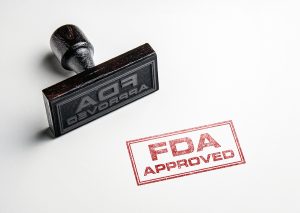 Oct. 14, 2016 – San Diego, CA — This week, the U.S. Food and Drug Administration posted the conclusion of its re-analysis of the ROCKET AF trial, which helped propel the blood thinning drug Xarelto towards approval by the federal agency.
Oct. 14, 2016 – San Diego, CA — This week, the U.S. Food and Drug Administration posted the conclusion of its re-analysis of the ROCKET AF trial, which helped propel the blood thinning drug Xarelto towards approval by the federal agency.
The FDA said it determined the trial results were not substantially affected by the faulty blood monitoring device used during the study, and its effects on clinical outcomes were “likely to have been quite modest.”
The agency’s Oct. 11 notice has raised questions about how it might affect the ongoing Xarelto litigation. Xarelto is currently the subject of over 10,700 lawsuits consolidated in a multidistrict litigation (MDL) in the Eastern District of Louisiana, according to the Judicial Panel on Multidistrict Litigation’s website. More than 1,000 lawsuits are also consolidated in a mass tort program in Philadelphia’s Complex Litigation Center, according to the state court’s docket report.
Mass Tort Nexus, which provides information on mass tort cases for attorneys, said on Wednesday the FDA’s re-analysis was unlikely to impact the ongoing litigation.
“We concluded that the FDA notice and the re-analysis should not impact the Xarelto Litigations based on the following: The re-analysis was not conclusive and did not use commonly accepted scientific methodology; the re-analysis contains multiple instances of terms such as ‘were likely’ and ‘it is unclear how relevant the results are’ indicating a lack of conclusiveness; the re-analysis admits a large margin for error as well as a lack of reliability; the re-analysis was an unscientific flawed analysis of a flawed study.”
The group also addressed concerns that the wording in the FDA’s notice gave Xarelto “implied preemption.” Specifically, the FDA said “no changes in [Xarelto’s] labeling to reflect the impact of use of the INRatio device in ROCKET are warranted. No other major regulatory action should be taken with respect to [Xarelto].”
Mass Tort Nexus said it did not believe defendants Janssen and Bayer could succeed on such an argument.
“We do not think an implied preemption of this nature would prevail. The FDAs decision not to require a label change was due to the fact that the re-analysis was limited in scope and made determination regarding a very narrow issue and was not conclusive. … An argument that the FDA statements related to the re-analysis indicates anything beyond the scope of the narrow focus of the re-analysis would not be supported by fact.”
The ROCKET AF trial was conducted between 2006 and 2010 and commissioned by Johnson & Johnson and Bayer Healthcare. The results of the trial, which showed the blockbuster anticoagulant Xarelto was noninferior to the traditional blood thinner warfarin, were called into question after evidence surfaced that the makers of the drug concealed key study data.
Janssen Pharmaceuticals markets Xarelto alongside Bayer. The Johnson & Johnson division was accused by the prestigious medical journal BMJ of hiding critical trial data from Bayer, the FDA and the New England Journal of Medicine, which published the results of the study ahead of the drug’s approval in 2011.

The INRatio Monitor System, manufactured by Alere, measures the amount of time blood takes to clot and was used to determine how much warfarin to give patients in the control arm of the ROCKET AF study. The device was pulled permanently from the market earlier this year.
Researchers challenged the outcome of the ROCKET AF study in light of the device’s recall, fearing the results could have been skewed in favor of Xarelto.
The FDA conducted a re-analysis of the study using information and data provided by Janssen and determined the results of the study were not substantially affected by the faulty INRatio device.
Xarelto’s label has been updated several times since it was approved five years ago to reflect health concerns related to the drug, including a black box warning suggesting the drug could increase the risk of blood clots if stopped prematurely or cause paralysis in patients getting an epidural. Other warnings include the risk of bleeding, including serious and fatal episodes.
The thousands of lawsuits filed against the drug’s manufacturers allege Xarelto caused serious and sometimes deadly bleeding episodes in plaintiffs or their family members. There is still no approved antidote for Xarelto should a patient start bleeding uncontrollably.
Note: The information provided in this article is based on reports from publicly available sources, including news outlets, police reports, and eyewitness accounts. National Injury Help has not independently verified all details of the reported incident. If you find any inaccurate or outdated information, please contact us, and we will review and update the content as appropriate. The photo used in this post is for illustrative purposes only and does not depict the actual scene of the incident.
Disclaimer: The content of this article is intended for informational purposes only and does not constitute legal advice or establish an attorney-client relationship with National Injury Help. For legal assistance specific to your case, we encourage you to contact a qualified attorney.
Free Case Evaluation
Contact Us today for a FREE, Immediate Case Evaluation
Contact Us today for a FREE, Immediate Case Evaluation
Categories
Recent posts
- Tucson, AZ – Injury Accident at Valencia Rd & Campbell Ave
- Tucson, AZ – Choque deja heridos en Valencia Rd y Campbell Ave
- Phoenix, AZ – Peatón muere atropellado en 32nd St y Broadway Rd
- Phoenix, AZ – Fatal Pedestrian Accident at 32nd St & Broadway Rd
- Tucson, AZ – Fatal Injury Crash on SR 83 near Sonoita




